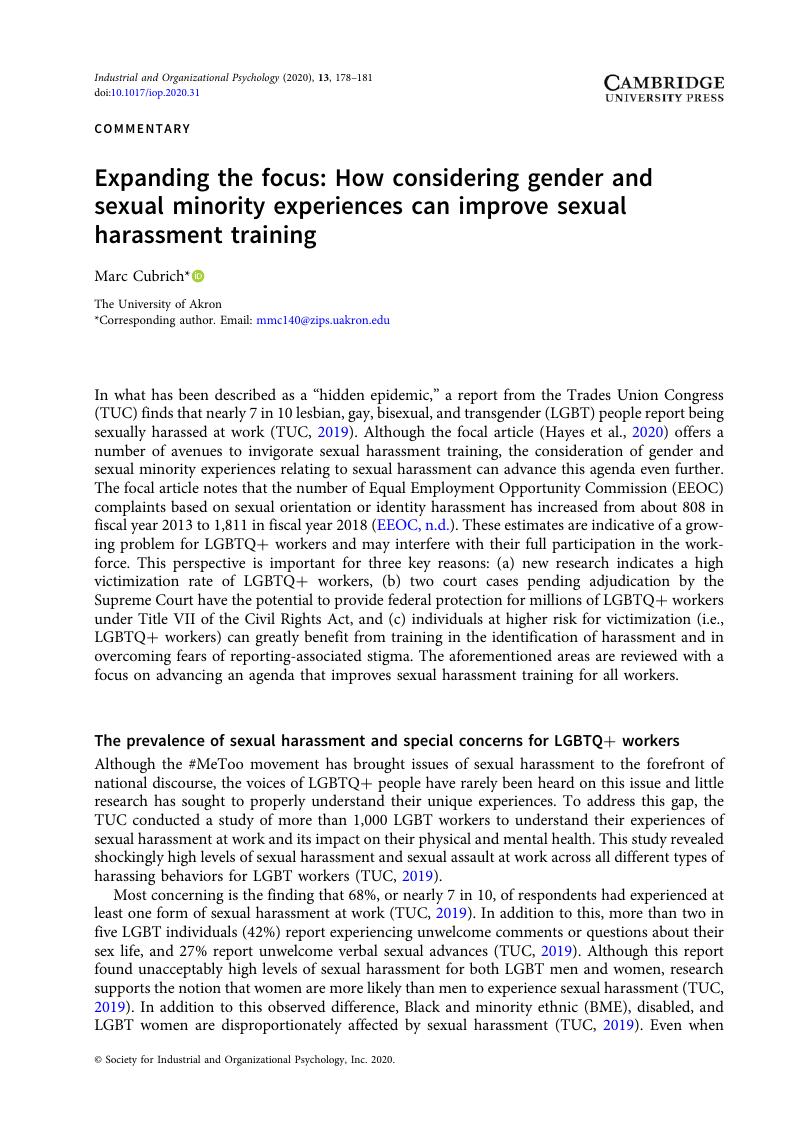Crossref Citations
This article has been cited by the following publications. This list is generated based on data provided by Crossref.
Malvini Redden, Shawna
and
Scarduzio, Jennifer A.
2024.
Mysteries, Battles, and Games: Exploring Agency in Metaphors About Sexual Harassment.
Management Communication Quarterly,
Vol. 38,
Issue. 1,
p.
117.



